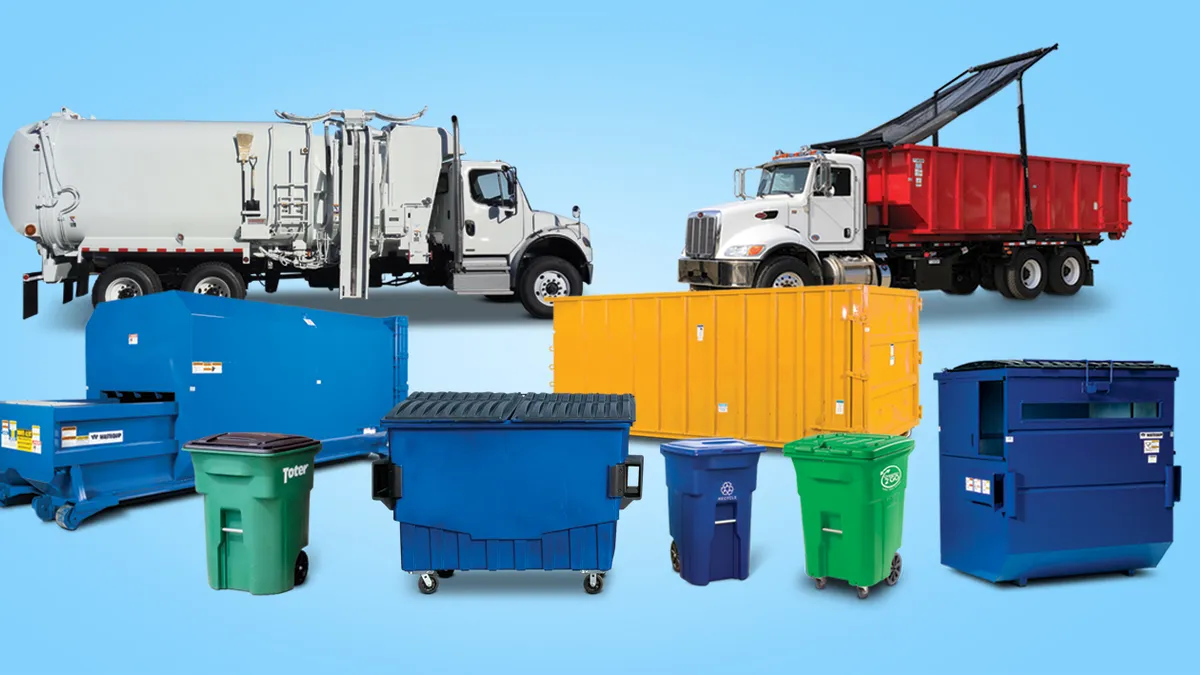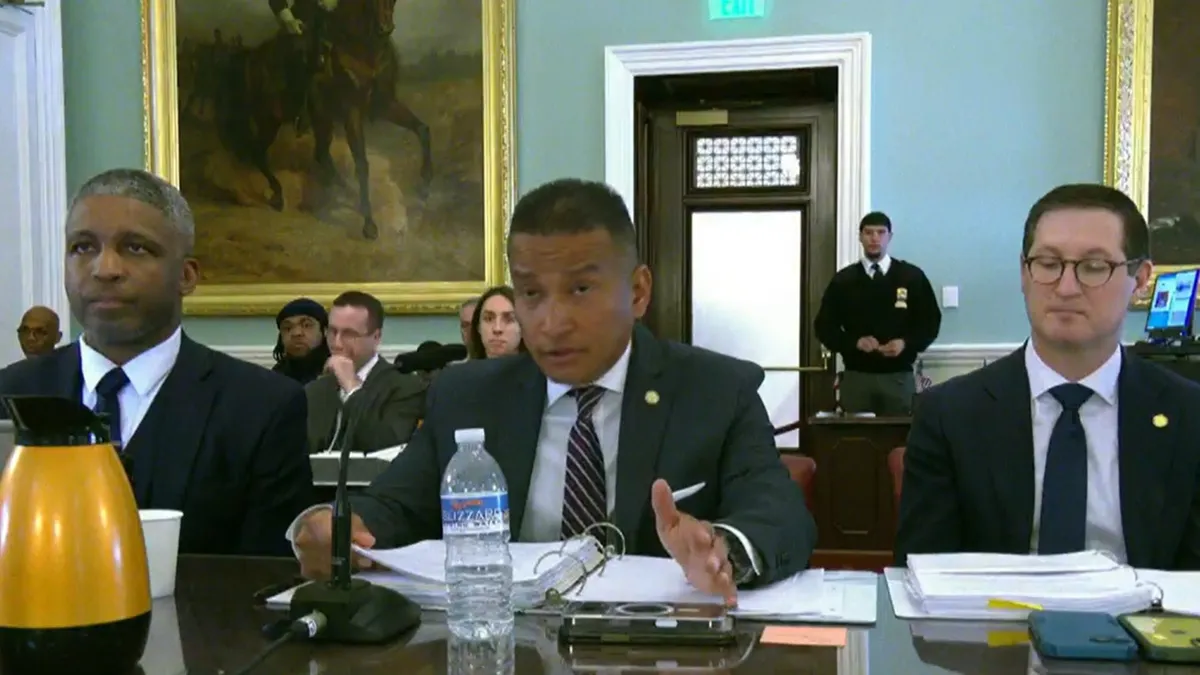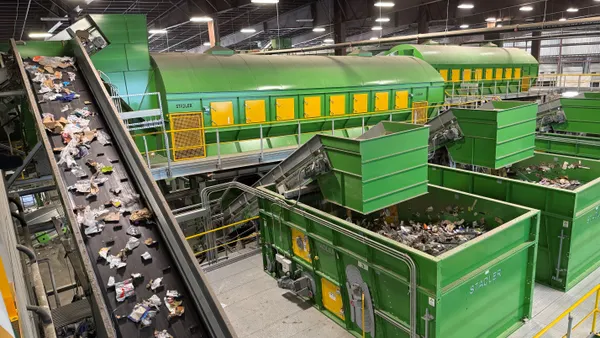As the waste and recycling industry adapts to growing expectations around sustainability reporting, one of its largest equipment manufacturers – Wastequip – is looking to become a leader on the issue.
The North Carolina-based company's CORE (corporate responsibility) program is being led by Kristin Kinder, newly promoted to vice president of research and waste stream sustainability. Kinder joined the company in 2018 after working on education campaigns for Waste Management and sustainability issues at large companies as a consultant for ENGIE Insight.
As Wastequip launches the CORE program, Kinder said the team will take a methodical approach to data analysis and strategy. The company has hired a new sustainability programs and reporting manager to assist with this work and convened a steering committee comprising leaders all the way up to CEO Marty Bryant. In a recent interview, Kinder laid out how CORE will center around three pillars – "people, planet and profit" – and build on work she said the company has been developing for years.
The following interview has been edited and annotated.
WASTE DIVE: Wastequip doesn't necessarily have the same expectations around ESG reporting that a public company might, and I don't know of any other private equipment competitors doing this yet. Why did it make sense to launch this program now?
KRISTIN KINDER: What's changed in the last few years is that while we hope we've always been doing the right thing, the path for defining what the right thing is for the planet has really come into focus. There's now a much more common language for talking about it and we've really seen this in the waste industry.
There's some convergence around reporting structures and tools to get there. Two of our main customers in the industry have really articulated their goals for the planet and there's clarity around what they're measuring... We are anticipating that eventually where those [ESG investments] are focused are going to influence us as well.
I think that growing interest we're anticipating is going to eventually trickle down to that level of accountability with suppliers. So it got a lot easier to define what the right thing was to do in society and in the marketplace. And that's really what's pushed the drive and why now.
Would it be fair to assume some of these customers could be asking you for more data as they expand their own reporting? Or, for example, if they're going in for a municipal bid they might want to provide more information about the environmental footprint of the equipment they'll be using?
KINDER: I think so. And keep in mind, we do business with national, regional, local haulers; as well as retail brands. So kind of aligning all of those interests, we want to make sure that we're serving each and every one of those.
We were already doing a lot of this before, but we weren't really telling the story and we weren't looking at it on a cohesive level. We had installed energy efficient lighting in our facilities. We have a pallet recycling program. We do scrap recycling and work on reducing our inbound and outbound freight. Plus we've had a number of diversity and employee initiatives in terms of safety, equality on pay and things like that. This is really an effort to consolidate those and speak to the value for our customers as well.
Is it too early say what kind of reporting standards you'll be using, or scopes of emissions you'll be focusing on?
KINDER: We've looked at what are our customers tracking, what is the industry tracking, understanding how to leverage external expertise.
Carbon dioxide emissions or equivalents of those is really the aligning metric in terms of global efforts, but also what we're seeing starting to emerge in the waste industry. For us, tracking our metrics on a company-wide basis is important, but it doesn't really get to the heart of what our customers need. Because it feels good to do business with companies that have have similar values, but it feels even better to know that your suppliers are making your goals better.
Our ultimate vision is really to get to a product score of greenhouse gas emissions so that you could know by buying a Wastequip product what you are mitigating, or how you are contributing to lessening greenhouse gas emissions.
Wastequip hasn't committed to specific company-wide emissions reduction targets, but Kinder confirmed it will be assessing all aspects of operations for potential changes. Raw materials that go into the company's products, and the processes it uses to manufacture them, are currently believed to be the company's highest sources of greenhouse gas emissions.
We're imagining our customers [having] three choices of products and one of them shows the greenhouse gas impacts. We feel the customer base really deserves to be informed on that level and we're really pulling it all together with that in mind from the beginning.
So it sounds like some of that will be quantifying what's already happening and communicating it to customers. In thinking about the future of carts or other containers, I know you're already using recycled resin in some products. Is that a potential example of how the emissions footprint could be further improved?
KINDER: That's an interesting question and actually really gets to an important point of what we're trying to do. There's a lot of talk in the market right now about recycled resin. I think we've seen a lot of creativity and I love that. Our approach is really to start back at the beginning with what defines recycled resin and to challenge the myths that are out there with real data. As a manufacturer, raw materials are one of our biggest impacts and therefore opportunities.
But in the spirit of genuinely wanting to be doing the right thing for the planet, is the best way to accomplish that through using recycled materials, through lightweighting and using less altogether, or with something entirely different? Those are the kinds of questions that we are asking now.
In talking through examples, Kinder said one relevant analogy is how cars come with an emissions score. Developing such a system for Wastequip's products, with third-party verification, will be part of the initial CORE process. No specific target dates are being released for this process or the company's broader operational assessment.
Getting the data makes you start to ask new questions than you would ask in the beginning. So I would say we are really laser focused on that. And then once we have that, we'll be looking at where those greatest impacts are and what is most actionable, quickest ... We have some internal timelines to hold us accountable, but really we want to go for quality.
Turning to the diversity and inclusion piece of your plan, is that also an area where you anticipate the need for more data gathering and identifying tangible standards to measure the company's progress?
KINDER: We admittedly are looking at our planetary data from a new perspective, but the diversity data we've actually made a lot of progress on ... We've been doing a lot of that for a while and then we're building on that vision.
Wastequip is a much different company today than it was in 2012. That's when our current management took over. Our management team today at all levels really reflects our workforce as a whole. And our workforce reflects the communities in which we're located. So we're pretty comfortable with our people tracking data. We've been improving the diversity of our workforce by 4-8% every year for at least the last three years. This year we even made more like a 9% jump, [to the point] where over half of our workforce is diverse.
Kinder later confirms Wastequip's definition of "diverse" is quantified on the basis of race.
On the pay side, we have a detailed process for reviewing salaries and setting targets... Our female employees are paid at 98% of that target and males are paid at 95-96% of that target.
While Wastequip doesn't share specific salary data, it confirmed these numbers are referring to progress toward internal position-based pay targets.
This is just an example, too, that data is what enables us to tell that story and to make changes. We expect to see that same type of story bleed into the planet pillar as we start to measure things that we hadn't before.
What I just shared is where we are and our vision for kind of where we're going. What we're building on that with is what we've talked about for a long time – we want Wastequip to be the best company that our employees have worked for and the communities that we work in have worked with. We're really looking to measure or pull together metrics that can tell that story.
So are we bringing in people who reflect the diversity of the communities that they work in? Are we paying them equally at all levels? Once they're here, are they safe? Are they happy? Are we promoting them and giving them opportunities at the same level? And then are we also giving back to the areas and communities that our people are from?
Does everything that has happened this summer [around racial inequity] add any more urgency to the diversity and inclusion piece of your CORE platform?
KINDER: I think we've always believed that treating our people well is the right thing to do. As a world, I think we're constantly learning more... The one thing I'll say about that on a personal note is being able to work for a company like this and to know that I am part of making that part of our world better has given me so much hope and helped me on an emotional level feel more empowered about what's happening and what's happened in the summer.
As you noted, it's becoming more common for large public companies to set and pursue ESG targets. It's less common among private companies in the industry, especially equipment manufacturers. What do you think these organizations should know about the feasibility of pursuing something like this?
KINDER: Whether you're a manufacturer or waste hauler, whoever you are in this waste industry's picture, we all know that you can't manage what you don't measure and that data will inevitably bring new ideas. And I think if the [rising] ESG investments aren't evidence enough of opening up doors for opportunities and revenue growth, sustainability is really a framework for looking for efficiency. And I think most companies can speak to valuing that. So I would say it's certainly a disciplined process, and that needs to be data-driven, but that data will always illuminate something that you didn't know.






















